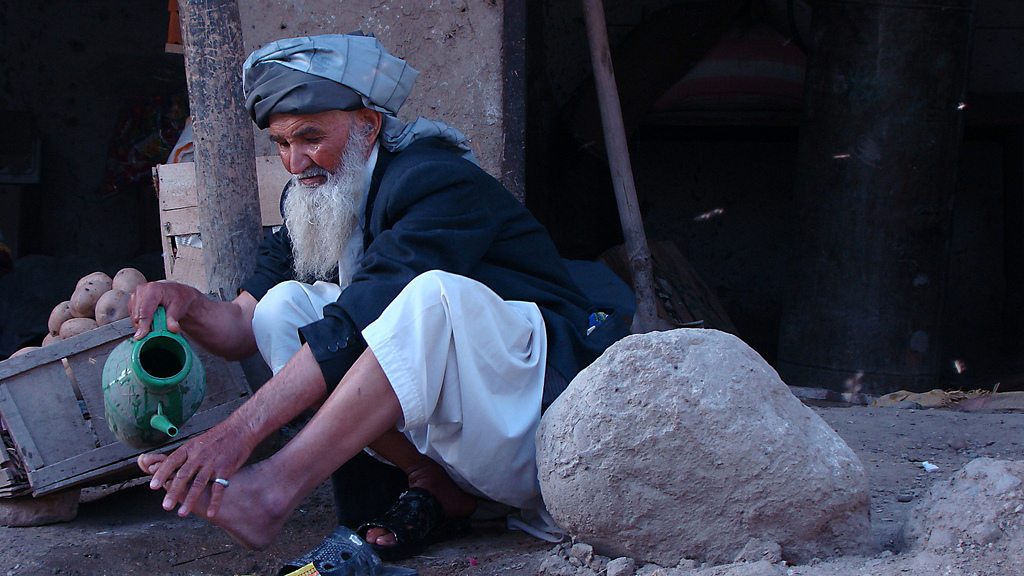How to Deal with Doubts About the Intention in Wudu? (Shafi’i)
Shafi'i Fiqh
Answered by Shaykh Jamir Meah
Question: Assalamu alaykum
When I make wudu, I have the intention of making the whole wudu (sunnan and fard aspects) in mind without necessarily utter the itention. Then before I wash my hands as a sunnah I say the basmalla or during washing the hands. But then before or during washing my face I don´t say anything.
Does it suffice that I say the basmalla before or during making the sunnah of washing the hands and that I know that I doing the fard after washing the hands and rinsing mouth and nose?
Answer: Wa’alaykum assalam, thank you for your question.
The Basmalah
It is a sunna to say the Basmalah at the beginning of wudu, but not obligatory. The minimal is to say ‘Bismillah’, while the optimal is to say ‘Bismillah al Rahman al Rahim’.
One says the Basmalah when starting wudu, so if one is starts with the sunna act of washing the hands, then one says it then, or if starting with the integral of washing the face, then one first says the Basmalah and then makes the intention of wudu while simultaneously beginning to wash the face.
If one does not say the Basmalah at the beginning of wudu, they can say it anytime during the wudu. When one says it during wudu, one may say, بِسْمِ اللهِ فِي أَوَّلِهِ وَآخِرِهِ, meaning, ‘In the name of Allah in its beginning and end.’
Intention in the Shafi’i school
Intentions are obligatory to intend in the heart and sunna to say with the tongue. Typical forms of the intention for someone in a state of minor ritual impurity are:
I intend to lift minor ritual impurity
I intend obligatory wudu
I intend purification for prayer
One of the general conditions of intentions is that it’s time occurs simultaneously with the act. In wudu, the intention is made simultaneously with the first obligatory act of wudu, which is washing the face.
If one ‘knows’ in their mind that they are making obligatory wudu, or lifting minor ritual impurity at the point of washing the face, then the intention is valid.
However, if one intended at the point of washing the face simply ‘I intend a fard act of wudu’ or one simply ‘knows’ one is doing a fard act, then according to our school this would not be a valid intention and therefore, the wudu and any acts performed with it would not be valid. Unfortunately, this seems to be the case in the situation you have described.
[Hashiyat al Bajuri, Bushra al Karim]
Waswasa
There is a fine line between not practicing correctly and suffering from waswasa. If this is a recurring theme and you are constantly having doubts about intentions, then you may be suffering from waswasa. If this is the case, then ignore the doubts and try your best to move on and not dwell on whether your intentions are valid or not. Please also refer to this article:
A Reader on Waswasa (Baseless Misgivings)
Taking an opinion outside of the school
If you are convinced that your wudu and worship have not been valid, and it will be too difficult for you to make up those prayers, then you can take the opinion of the Hanafi school that intention is not obligatory to make for wudu and ghusl. [Quduri]
If you are suffering from waswasa, then take this valid opinion from the Hanafi school, as it will put a stop to it insha’Allah. However, please do check with a Hanafi scholar in regards the integrals of wudu in their school.
Training yourself to make the intention
In the meantime, train yourself to make the intention according to our school. You may do this by writing and sticking a note on the door or place where you make wudu to remind you, or by going very slowly when making the first steps of wudu, until it becomes second nature.
Warmest salams,
[Shaykh] Jamir Meah
Shaykh Jamir Meah grew up in Hampstead, London. In 2007, he traveled to Tarim, Yemen, where he spent nine years studying the Islamic sciences on a one-to-one basis under the foremost scholars of the Ribaat, Tarim, with a main specialization and focus on Shafi’i fiqh. In early 2016, he moved to Amman, Jordan, where he continues advanced studies in a range of Islamic sciences, as well as teaching. Jamir is a qualified homeopath.
